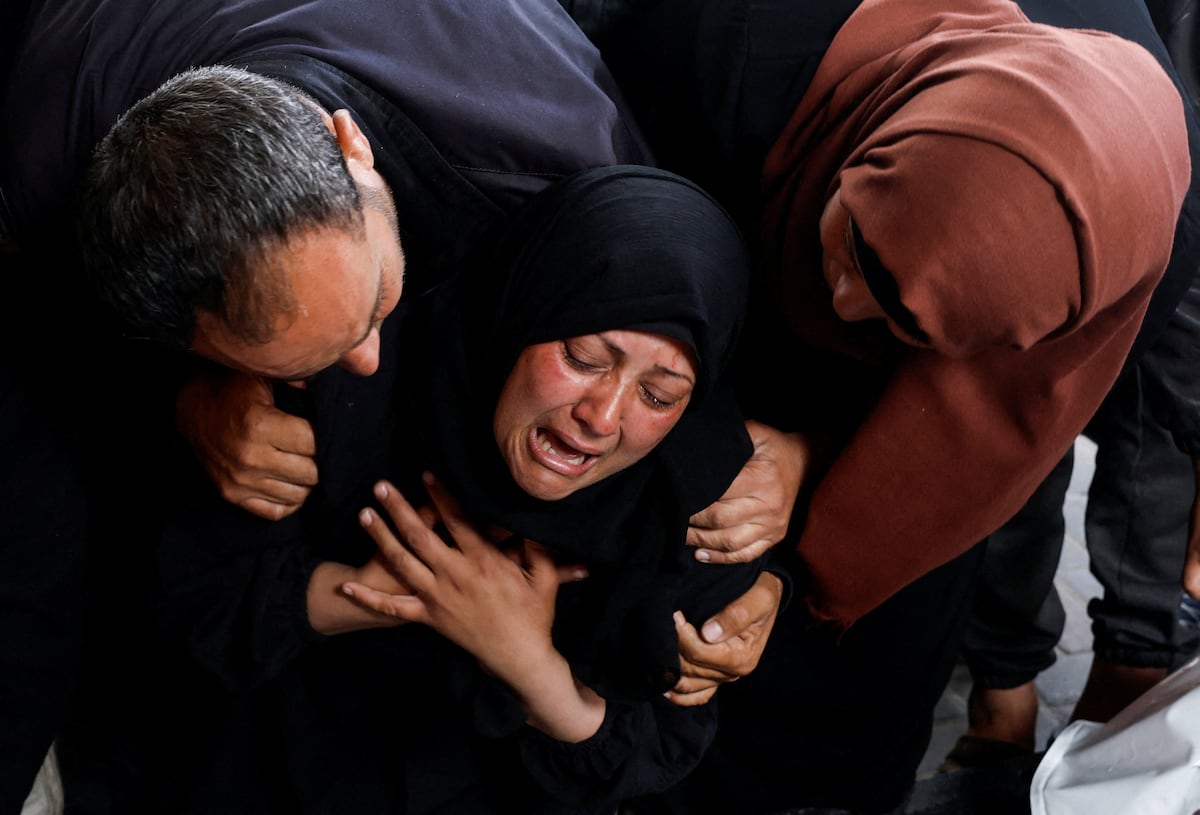Netanyahu has used the invasion of Rafah as a decoy, as a tool of psychological warfare. 44% of Israelis support invading Rafah, even if it would represent a crisis in relations with the United States, according to a poll.
The army has just called up thousands of reservists for "operational activities on the Gaza front," and Defense Minister Yoav Gallant met this Monday to "debate a series of measures in preparation for operations in Rafah's last refuge. He could now become part of the promised response to Tehran, which he blames for the surprise attack carried out by Hamas last October that sparked the war. The Israeli army planned to launch them this week to order more than half of Gaza's 2.3 million inhabitants to abandon their last precarious refuge. The Ministry of Defense had published a public tender to acquire 40,000 tents that could accommodate 480,000 people. More than one million people have been forced to leave their homes in the Gaza Strip. The buildings in which they lived are largely rubble or uninhabitable. "It is practically impossible to displace all the Palestinians in Rafah. And, even if I were, he clarifies, it would be at the cost of his health," says the Briton. "I can't see any feasible possibilities," he adds. "I spoke to displaced people two, three, four times in the last few months. One of the possibilities being talked about is taking people to a beach, which is very narrow, with no running water, no hygienic conditions, no toilets,' he says. "It was hot, it was dark, and I was avoiding stepping on people because of the high density of patients." "That area of Gaza already suffered from health problems before the war. Now, he remembers, in the pediatric department, they faced such dramatic health problems," says a British aid worker.

